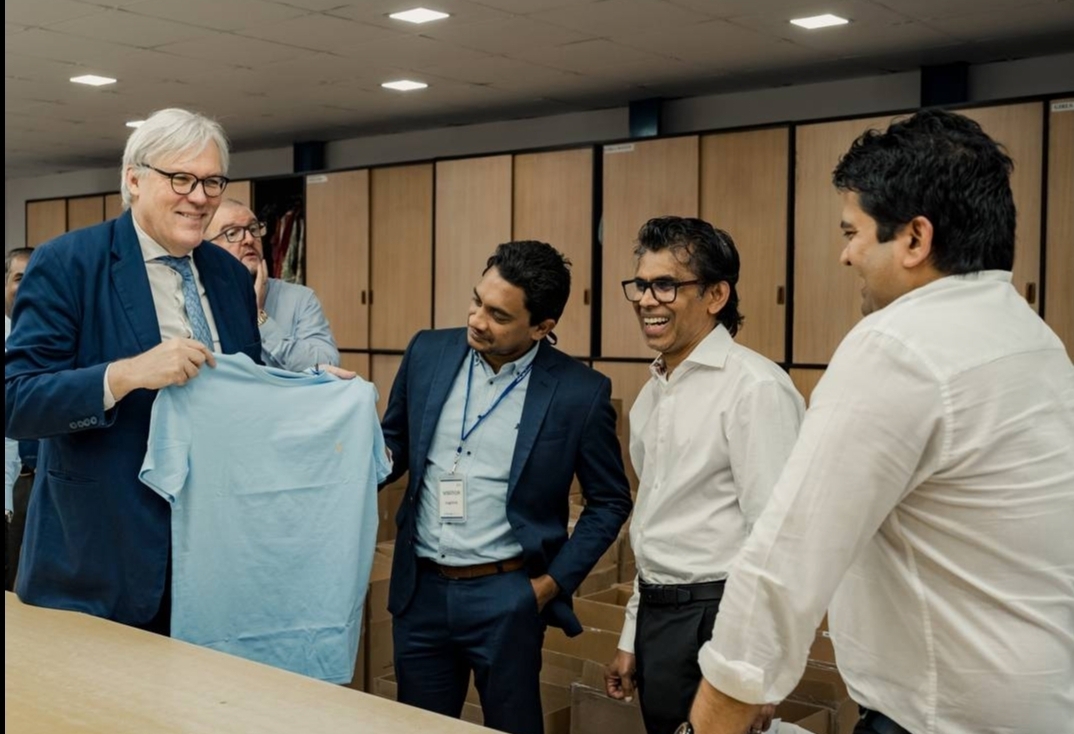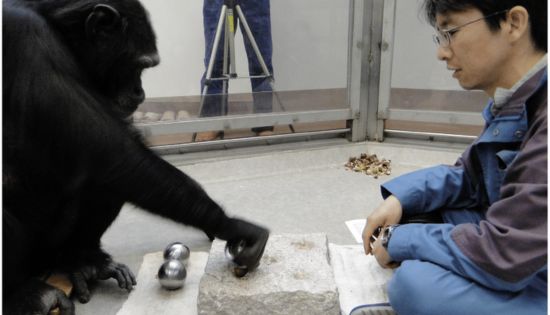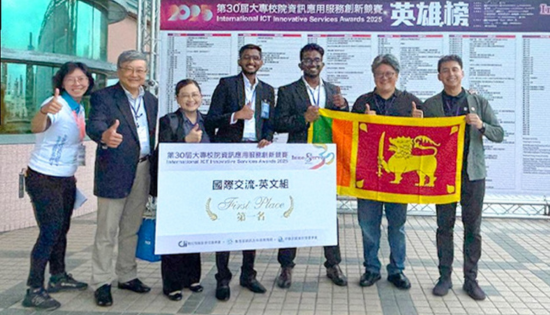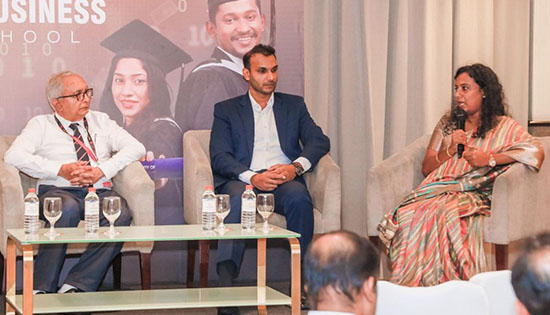Ace Your University Interview in Sri Lanka: A Guide with Examples

Getting into a Sri Lankan sate or non-state university is not just about the scores. For some universities’ programmes, your personality, communication skills and ways you face their interviews matter. Whether you are applying to a private university like IIT, SLIIT, Horizon, or Cinec or state universities like University of Colombo or University of Moratuwa, you must ensure you possess the kinds of skills that cannot be assessed on paper but in interviews. No matter the questions, qualifications and assessments you are given, the interviewer has to be left with the impression that you can make a big difference. Here’s how to prepare, plus examples based on Sri Lankan universities and programs.
Why Interviews Happen?
In some of Sri Lanka’s most acclaimed universities, the requirements for a specific program vary and the interview is what that assess whether you have the necessary qualifications and skills the program requires you to have. Scoring the interview means securing your position in the program.
Below is a list of universities you can apply to and expect an interview:
- IIT (Informatics Institute of Technology)
When applying to IIT, especially for its UK-affiliated degrees like BSc (Hons) Computer Science, BSc Artificial Intelligence & Data Science, MSc Cyber Security, the admission process includes Skype interviews for international students or for conditional offers: Informatics Institute of Technology
- SLIIT
According to SLIIT’s admissions instructions, applicants may need to go through an interview (via Zoom, WebEx, phone) as part of applying to certain degree programs. These interviews are required in programmes like BSc (Hons) in Information Technology (AI, Software Engineering), Engineering Degrees: SLIIT
- APIIT
While APIIT’s website doesn’t always explicitly mention interviews for every course, it is a private institution with UK partner universities, so it’s possible that more selective programs or postgraduate courses like Business, IT, Engineering, Biomedical Science may involve personal assessments or interviews. APIIT
- University of Colombo
For postgraduate programs like MA in International Relations or other postgraduate degrees, there are department-level interview panels. Faculty of Arts
- University of Moratuwa
For some postgraduate programmes like MSc in Specialised Process Engineering, only short-listed candidates are called for an interview. University of Moratuwa Also, for certain courses like the National Diploma in Technology (Maritime Studies), there is a medical test + interview for shortlisted candidates. Moratuwa Tech Institute
How to Pass These Interviews : General + University Specific Tips
The key to preparing for any interview is know your answers. With confident answering and better engagement with the interviewers, the common misconception that interviews are a hurdle will not matter to you. Here are some general tips on how pass your interview.
1. Be able to explain WHY you chose this university
Mention a specific reason such as:
- “I like Moratuwa’s studio-based design culture.”
- “SLIIT’s industry links with tech companies are valuable for future internships.”
- “APIIT’s UK-based law curriculum suits my long-term goal of studying abroad.”
Interviewers want to see that you chose them, not just any university.
2. Understand the Programme Structure
Read the modules:
- For Software Engineering – algorithms, Java, databases
- For Psychology – cognitive psych, research methods
- For Business – HRM, marketing, leadership
Mentioning a specific module shows real preparation.
3. Be Ready to Talk About Your Strengths
Examples interviewers love:
- Leading a school project
- Coding small projects
- Writing, debating, or sports
- Community work
4. Learn About Their Values & Culture
Each university has a personality:
- Moratuwa – innovation and discipline
- IIT – UK academic rigour
- APIIT – professionalism
- NSBM – leadership and club culture
Mentioning this shows maturity.
5. Ask Smart Questions
Examples:
- “How does the internship placement work for this programme?”
- “What research opportunities are available for undergraduates?”
- “How does the university support international progression pathways?”
6. Show Confidence & Communication Skills
Speak clearly, smile, and structure answers. Use simple frameworks like Why this programme – Why this university – Why me? Here’s how you can prepare for and pass these interviews effectively, with examples relevant to each university.
1. Research the Institution and the Program
- For IIT
Know that IIT offers UK degrees via its partnerships like University of Westminster, Robert Gordon University, in computing and business. Informatics Institute of Technology Be ready to talk about why you want a UK-aligned degree, how you foresee your future, how proud you will be to possess such a qualification and how specific courses like BSc AI or MSc Cyber Security align with your goals.
- For SLIIT
Understand what SLIIT offers. They have BSc (Hons) programs that interview-based in IT, Computer Science, or Engineering. SLIIT If your interview is for a Curtin degree (SLIIT has Curtin University pathways), mention how you appreciate the curriculum and how it will contribute to your future. Show how much their programme objectives define your passion.
- For APIIT
Since APIIT partners with universities in the UK, Malaysia, Australia, etc., articulate your long-term career plan (industry vs research) and why a degree through a private-university pathway makes sense for you. Admire their curricula and show how much research you have done before applying to the programme.
- University of Colombo / Moratuwa (Postgraduate)
Look into the specific department (International Relations or Engineering). For Colombo’s MA in IR, know key theories, current world events, and how your background fits. Faculty of Arts
For Moratuwa’s MSc SPE, reflect on your professional or academic experience in process engineering, and have a clear research or career trajectory. University of Moratuwa
- NIBM (National Institute of Business Management)
Interview-based programmes like Data Science, Business Analytics, Cybersecurity and Psychology (affiliated with Coventry University), assess your skills based on instructions each program has outlines. Know what you are applying to and know the strengths, goals and objectives of the program. They have the NIBM-Coventry University partnership, Course-specific labs (AI, cyber) and Internship success stories. Look into them, show how much you are inspired by them and use key terms. Make sure you show how you possess practical interest in problem-solving and clear awareness of tech-related risks (cybersecurity, AI ethics).
- CINEC Campus
Their Interview-based programmes are Marine Engineering, Logistics & Shipping and IT & Management (for UK affiliations). Make sure you have done proper research on Importance of shipping/logistics in the Sri Lankan economy and Global job demand if you need to ace the interview. Showing genuine interest in the maritime sector will also give you some free points.
2. Prepare Your Answers
Some common themes / questions you might face, especially for Sri Lankan university interviews:
- “Why this course?”
Be very specific. For example: “I want to do the MSc in Cyber Security at IIT because I am fascinated by data protection, and IIT’s curriculum (with modules like forensics) aligns with what I want to do in industry.”
- “Why this university?”
Mention partnerships, research strength, or reputation. Eg: “SLIIT’s degree (via Curtin) is recognized internationally, and their strong ties with local industry will help me secure internships.”
- “Tell us about your background / achievements.”
Highlight any relevant projects, internships, or academic work – e.g., “At school, I built a simple machine-learning model to predict …” or “During my work experience, I contributed to a data-analysis task for …”
- “What are your future plans?”
Whether it’s research, working locally, or studying abroad, explain clearly how this program helps.
- For research / postgraduate interviews
Prepare to talk about your research interests, why you chose a specific supervisor or department, and how your background equips you for that research.
3. Prepare for Panel Interviews
- For Colombo University postgraduate interview, you might face a panel (e.g., Head of Department + two faculty). Faculty of Arts. So, address your answers to the panel, make sure to include academic depth, and treat it like a serious professional discussion, not just a casual talk.
If you are to succeed, make sure you research the institution deeply, understand the structure and strengths of the program and be ready to explain why they are the right fit. Interviews look for students who think critically, communicate respectfully and express their future goals aligning that specific field and the institute.
Ultimately, success in a Sri Lankan university interview comes down to being well-researched, well-spoken, and well-motivated. Show the interviewer who you are, why you belong in that program, and how you plan to grow as a student and future professional.
Related News
IIT’s PDU Empowers the Next Generation with Future-Ready After A/L Short Courses
In today’s rapidly evolving digital world, education must continually adapt to prepare young minds for the demands of tomorrow. Recognising this need,…
Read MoreWhat Sri Lankan students miss about non-state university scholarships
Non-state scholarships dominate various gateways to real partnerships around the world but this is not possible when a lot of them are…
Read MoreAce Your University Interview in Sri Lanka: A Guide with Examples
Getting into a Sri Lankan sate or non-state university is not just about the scores. For some universities' programmes, your personality, communication…
Read MoreIIT Makes History for Sri Lanka – Wins First Place at InnoServe Awards 2025 in Taiwan!
In a remarkable achievement that marks a historic milestone for Sri Lanka, students from the Informatics Institute of Technology (IIT) have secured…
Read MoreFuture-Ready Leaders Begin at IIT BUSINESS SCHOOL
In a moment of pride, joy, and reflection, IIT Business School is set to celebrate a defining chapter in its journey, the…
Read MoreCourses
-

The future of higher education tech: why industry needs purpose-built solutions
For years, Institutions and education agencies have been forced to rely on a patchwork of horizontal SaaS solutions – general tools that… -

MBA in Project Management & Artificial Intelligence – Oxford College of Business
In an era defined by rapid technological change, organizations increasingly demand leaders who not only understand traditional project management, but can also… -

Scholarships for 2025 Postgraduate Diploma in Education for SLEAS and SLTES Officers
The Ministry of Education, Higher Education and Vocational Education has announced the granting of full scholarships for the one-year weekend Postgraduate Diploma… -

Shape Your Future with a BSc in Business Management (HRM) at Horizon Campus
Human Resource Management is more than a career. It’s about growing people, building organizational culture, and leading with purpose. Every impactful journey… -

ESOFT UNI Signs MoU with Box Gill Institute, Australia
ESOFt UNI recently hosted a formal Memorandum of Understanding (MoU) signing ceremony with Box Hill Institute, Australia, signaling a significant step in… -

Ace Your University Interview in Sri Lanka: A Guide with Examples
Getting into a Sri Lankan sate or non-state university is not just about the scores. For some universities' programmes, your personality, communication… -

MCW Global Young Leaders Fellowship 2026
MCW Global (Miracle Corners of the World) runs a Young Leaders Fellowship, a year-long leadership program for young people (18–26) around the… -

Enhance Your Arabic Skills with the Intermediate Language Course at BCIS
BCIS invites learners to join its Intermediate Arabic Language Course this November and further develop both linguistic skills and cultural understanding. Designed… -

Achieve Your American Dream : NCHS Spring Intake Webinar
NCHS is paving the way for Sri Lankan students to achieve their American Dream. As Sri Lanka’s leading pathway provider to the… -

National Diploma in Teaching course : Notice
A Gazette notice has been released recently, concerning the enrollment of aspiring teachers into National Colleges of Education for the three-year pre-service… -

IMC Education Features Largest Student Recruitment for QIU’s October 2025 Intake
Quest International University (QIU), Malaysia recently hosted a pre-departure briefing and high tea at the Shangri-La Hotel in Colombo for its incoming… -

Global University Employability Ranking according to Times Higher Education
Attending college or university offers more than just career preparation, though selecting the right school and program can significantly enhance your job… -

Diploma in Occupational Safety & Health (DOSH) – CIPM
The Chartered Institute of Personnel Management (CIPM) is proud to announce the launch of its Diploma in Occupational Safety & Health (DOSH),… -

Small Grant Scheme for Australia Awards Alumni Sri Lanka
Australia Awards alumni are warmly invited to apply for a grant up to AUD 5,000 to support an innovative project that aim… -

PIM Launches Special Programme for Newly Promoted SriLankan Airlines Managers
The Postgraduate Institute of Management (PIM) has launched a dedicated Newly Promoted Manager Programme designed to strengthen the leadership and management capabilities…
Newswire
-

UK Trade reforms to lift Sri Lanka Garment Exports by over 10%
ON: February 23, 2026 -

Star Sports removes disputed T20 World Cup promo amid criticism
ON: February 23, 2026 -

Meenagaya Intercity Express resumes services to Batticaloa
ON: February 23, 2026 -

Dollar rate : Rupee edges lower
ON: February 23, 2026










